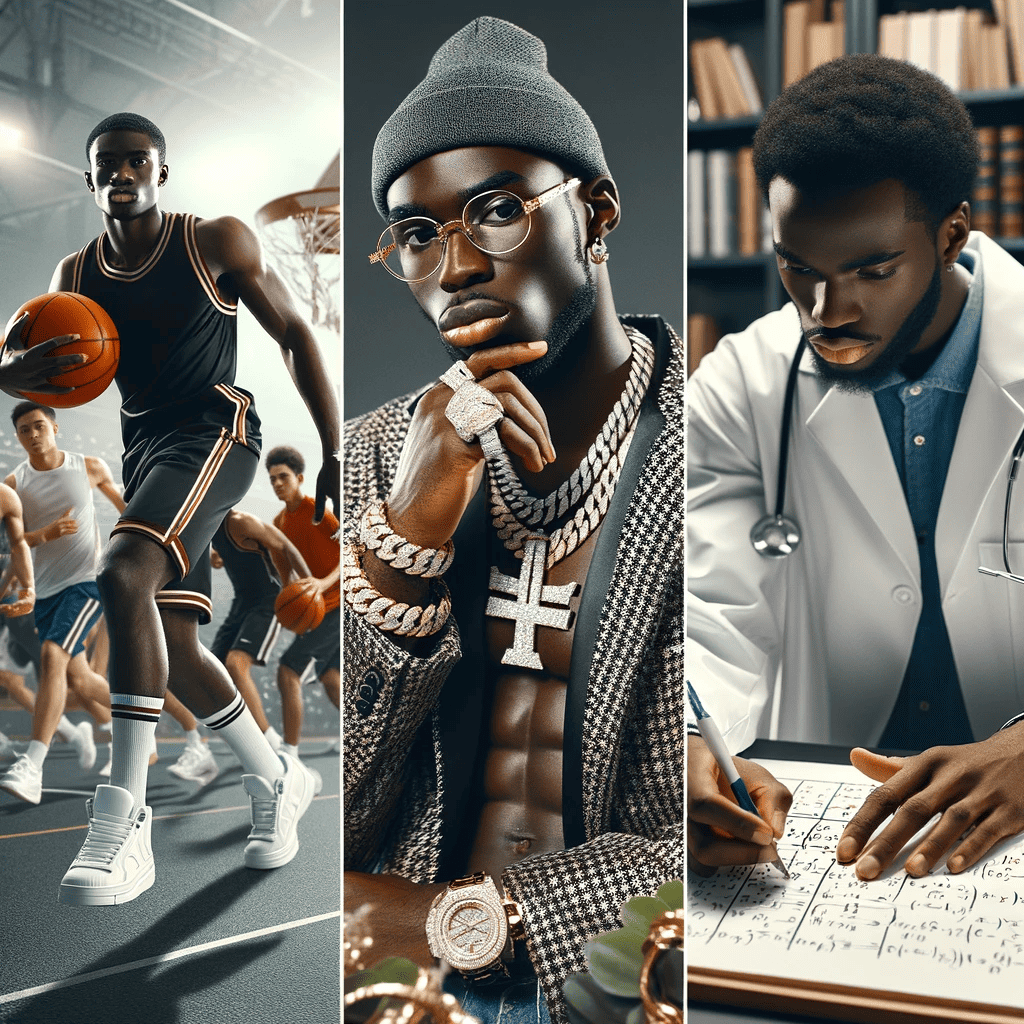Black men, it’s time to disconnect. Look around media and all you see accepted as ‘The best of us’ are public figures that seemingly perpetuate every stereotype that most of us claim we hate being grouped into. We will sit and start real beefs over who’s the greatest [insert black sports figure] currently and historically. But to what end? Now we’re fighting with REAL people in REAL life about how one black man is greater than the other. Why are we choosing one? What’s even more disturbing is how badly we trash those we don’t feel are the greatest. We literally talk down to them as men like they’ve done something wrong by not being the best AT A GAME! In a word, that’s messed up. We need to be better and do better. Do you not see the picture that paints of us? Do we not see the damage that mindset does to our community?
The psychological impact of this narrative on Black men is multifaceted and profound. By glorifying and limiting ourselves to stereotypes – whether it’s the sports star, the entertainer, or the toughened product of a harsh environment – we’re not only diminishing our own self-worth but also perpetuating a cycle of harmful representation.
The Issue with Stereotypes: Psychologically, stereotypes have a twofold effect. They shape external perceptions and influence internal self-concept. According to a study in the “Journal of Social Issues” (2012), exposure to stereotyped media portrayals can reinforce societal biases. This constant reinforcement not only affects how others view Black men but also how Black men view themselves and their capabilities.
The Consequence of Limiting Aspirations: When success is predominantly portrayed through entertainment and sports, it can create a tunnel vision regarding what success looks like. A report by the NCAA shows that only a tiny fraction of college athletes make it professionally, highlighting the unrealistic nature of these aspirations. Moreover, a study published in “Psychology of Men & Masculinity” (2017) discussed how such narrow definitions of success could lead to feelings of inadequacy and failure among those who don’t achieve these specific goals.
The Psychological Impact of “Thug Culture” and Prison Culture: Glorification of thug culture and prison culture can have detrimental effects, including normalizing harmful behaviors and perpetuating cycles of criminality and incarceration. Research from the “American Journal of Public Health” (2013) suggests that exposure to these cultures can lead to increased aggression and acceptance of violence. Moreover, it distorts the reality of prison life, which is often marked by trauma and long-term socio-economic struggles post-incarceration.
The Need for Broader Representation: What’s needed is a diversification of role models. In fields like science, technology, education, and business, Black men are making significant contributions, but these achievements often don’t receive the same recognition or admiration. Representation in these areas can have a powerful psychological effect, expanding the horizon of what young Black men aspire to become. A study in “Child Development” (2018) found that positive role models in diverse fields can significantly influence youth’s aspirations and self-esteem.
Breaking the Cycle: To break free from these limiting narratives, it’s essential to engage in self-reflection and community dialogue. By recognizing the diversity of Black male experiences and success, we can start to dismantle these stereotypes. It’s also crucial to support education and community programs that provide diverse opportunities and exposure to different career paths.
The Takeaways: As Black men, it’s time to redefine what success and greatness mean. It’s not just about being the best in sports or entertainment or fitting into a glorified tough persona. It’s about recognizing and celebrating the breadth of our capabilities and achievements in all spheres of life. By doing so, we not only enrich our own lives but also pave the way for future generations to see and realize their full potential, free from the constraints of narrow stereotypes.

